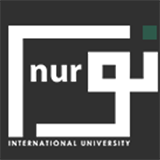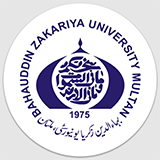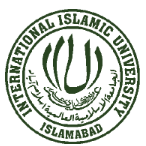Pakistan Institute of Development Economics (PIDE) is one of the most important economic policy think tanks in Pakistan and the leading economic research institution in the country. PIDE is located in Islamabad. It is not only an educational institution, but also plays a research and policy advisory role. Here are some detailed information about PIDE:
Overview
Founded: PIDE was established in 1957 and is one of the earliest economic research institutions in Pakistan.
Accreditation: PIDE is accredited by the Higher Education Commission (HEC) of Pakistan and is a member of the Pakistan Society of Development Economists.
Mission: PIDE's mission is to provide intellectual support for Pakistan's economic and social development through high-quality research, education and policy dialogue. It is committed to becoming a reliable advisor to the government and the private sector and influencing public policy through research.
Main Functions
Research: PIDE conducts a wide range of economic and social science research covering macroeconomic policies, microeconomic analysis, poverty and inequality, education, health, labor markets, agriculture and rural development.
Education: PIDE offers master's (MS, MPhil) and doctoral (PhD) degree programs in economics to train a new generation of economists and researchers.
Policy dialogue: PIDE frequently organizes seminars, roundtables and public lectures to promote dialogue between government officials, academics, business leaders and civil society organizations.
Publications: PIDE regularly publishes research reports, working papers, journal articles and books to disseminate research results to the public and decision makers.
Research areas
Macroeconomics: Includes research on economic growth, fiscal policy, monetary policy and other aspects.
Microeconomics: Involves analysis of household behavior, corporate behavior, market competition and other aspects.
Development economics: Focuses on issues such as poverty, inequality, education, and health.
Labor economics: Studies issues such as labor markets, employment, and wages.
Agricultural economics: Explores issues such as agricultural productivity, rural development, and food security.
Environmental economics: Involves economic analysis of environmental issues such as natural resource management and climate change.
Educational programs
Master's programs: Offers Master of Economics (MS) and Master of Philosophy (MPhil) degrees, which are designed to provide students with a solid theoretical foundation in economics and quantitative analysis skills.
Doctoral programs: PIDE offers doctoral (PhD) programs designed to train senior researchers who can work in academia and policy making.
Policy Impact
PIDE's research findings and policy recommendations have had a profound impact on Pakistan's economic and social policies. Its work has helped shape policies in many key areas, including tax reform, social security, education reform, etc.
By collaborating with government agencies, international organizations and the private sector, PIDE ensures that its research can be translated into practical policy actions.
International Cooperation
PIDE has established partnerships with many well-known universities and research institutions internationally, and these collaborations include joint research projects, academic exchanges and international conferences.
It is also part of the International Economic Association (IEA) and other international research networks, which enables PIDE to participate in global research agendas and discussions.
Conclusion
Pakistan Institute of Development Economics (PIDE) is a key institution for economic policy research and education in Pakistan. It provides valuable intellectual resources for the country's development through high-quality research, education and policy dialogue. PIDE not only enjoys a high reputation domestically, but is also regarded as an important player in the field of development economics internationally. Through its research and educational activities, PIDE is committed to cultivating a new generation of economists and policymakers who can deal with complex economic challenges.
-

Nazeer Hussain University
-

Nur International University
-

FATA University
-

Shaheed Benazir Bhutto City University
-

Bahauddin Zakariya University
-

University of Agriculture, Faisalabad
-

Superior Group of Colleges
-

International Islamic University, Islamabad
-

University of the Punjab
-

The University of Lahore
-

Mesoamerican University
-

Istmo University
-

Mariano Galvez University of Guatemala
-

Regional University of Guatemala
-

Galileo University
-

Francisco Marroquín University
-

Rafael Landívar University
-

University of the Valley of Guatemala
-

University of San Carlos of Guatemala
-

Technological Institute of Tlaxcala Plateau
-

Golfo University
-

Technological University of South Sonora
-

Technological University of Huejotzingo
-

Tizimín Institute of Technology
-

Chilpancingo Institute of Technology

